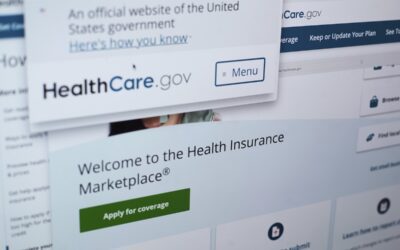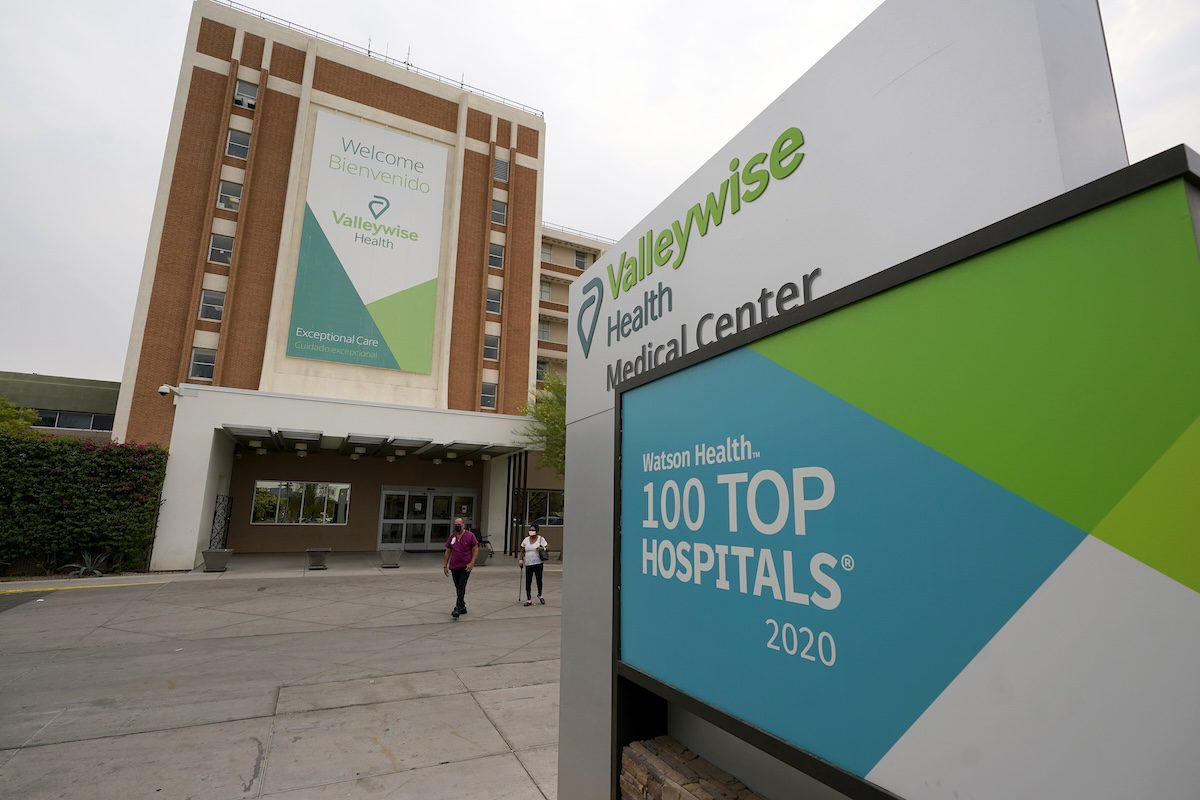
Arizona Burn Center Valleywise Health shown Monday, June 14, 2021, in Phoenix. (AP Photo/Ross D. Franklin)
President Donald Trump’s “One Big Beautiful Bill Act,” which all of Arizona’s Republican congressmen voted to pass, will result in an estimated 300,000 Arizonans losing coverage through the Arizona Health Care Cost Containment System (AHCCCS), the state’s Medicaid program.
But, the effects of federal funding cuts will go far beyond just those who will lose their health care. An alarming future will become a health system reality.
A panel discussion of local health care leaders organized by Phoenix Mayor Kate Gallego and US Sen. Mark Kelly warned of longer wait times, more crowded ERs, higher health care premiums, reduced services, and an overall weaker health care infrastructure.
Want Arizona news in your inbox each morning? Sign up for our free newsletter.
Medicaid provides insurance to people with disabilities or qualifying low incomes, covering 80 million Americans, and about 2 million Arizonans through AHCCCS, which is more than 25% of the state’s residents.
Over 100,000 providers are enrolled in the state’s Medicaid program, covering 1.9 million Arizonans, and making up 50% of Arizona births.
An estimated $1 trillion will be slashed from federal Medicaid funding across the country over the next 10 years, according to the Congressional Budget Office.
Every part of Arizona’s health care system will feel the effects of the Trump administration’s changes, and anyone who uses the state’s health care system will experience impacts of Medicaid cuts, even those who do not use Medicaid, panelists said.
“It’ll take a few years for those changes to be implemented, but over time, we’re going to see a major shift in how health care is delivered for Arizonans and who has access to any health care at all,” Kelly said.
Hospitals and healthcare providers are significant economic drivers in Arizona—employing more than 470,000 workers as the second largest employment sector in the state, but the state already suffers from a healthcare professional shortage, which will only be worsened by Medicaid cuts.
READ MORE: GOP Congressman calls Medicaid cut critiques ‘whining and bedwetting’
With the Medicaid reduction and the strain the entire state’s healthcare infrastructure will feel, healthcare providers will make difficult decisions about their finances and will likely cut jobs, said Beth Kohler, CEO of Arizona Association of Health Plans.
“This is directly going to impact our ability to grow talent and to keep talent here in Phoenix and in the state,” said Brittney Kaufmann, CEO of Health Systems Alliance of Arizona.
Medical education, residency programs and clinical research, will all be impacted, Kaufmann said.
For rural hospitals that start to lose revenue, the only other option will be to send more people into the city of Phoenix to get care, which will increase the burden of access to care for larger urban centers, said Helena Whitney, senior vice president of policy and advocacy, Arizona Hospital and Healthcare Association.
“I can’t overstate how people need to understand that it’s not that it’s not only that individual [losing their care] who’s being impacted, it’s every other person who is also in the emergency department who has their own private health insurance,” Whitney said. “If you’re waiting five hours today in the [emergency department] to get seen, you can double and triple that.”
Uncompensated care, which is hospital care provided where no payment is received from the patient or an insurer, will become increasingly more common and will heavily impact health centers.
“We know that people still get sick whether they’re insured or not,” said Lisa Nieri, chief programs officer, Arizona Alliance for Community Health Centers. “A 1% decrease in Medicaid coverage for patients and a 1% increase in uncompensated care creates a $1 million shortfall for health centers every year…protecting coverage means protecting health stability.”
Worsening homelessness crisis and straining emergency care
Many people avoid homelessness because they receive mental health and substance abuse services, but more people will be entering homelessness because of the significant cuts to Medicaid, said Scott Hall, deputy director, Phoenix Office of Homeless Solutions.
One of the largest resources in helping people overcome those barriers is Medicaid, Hall said. “Now we’re making that more complex and more convoluted, which is going to exacerbate the issue.”
Before many people can even start thinking about getting out of homelessness, they need to overcome mental health issues, physical health, and substance abuse problems, Hall said.
“Our homeless service providers in our community have been asked for years to do more with less, and this is just making that even worse,” Hall said.
Medicaid cuts will impact ambulance services, and first responder agencies will need to cover costs from patients who can’t pay, said Ray Ochoa, an assistant chief for the Phoenix Fire Department.
“[People who lose their coverage] may have to use the 911 system to get general health care that could potentially be provided more properly at a primary care physician, an urgent care or specialist, so we can expect to see increased activities and call volumes there and seeing sicker patients,” he said.
When are changes coming?
The most significant changes to Medicaid are work requirements, and doubling eligibility determinations—requiring the state to check Medicaid eligibility every six months instead of once a year, adding a significant documentation strain for the state, Kohler said.
The more paperwork people have to provide to the state, the harder it is for them to understand what the state’s expectations are, and more people fall off the program, Kohler said.
Because none of the changes to the Medicaid program have gone into effect yet, people should still provide the state eligibility documentation to retain their benefits as normal.
Support Our Cause
Thank you for taking the time to read our work. Before you go, we hope you'll consider supporting our values-driven journalism, which has always strived to make clear what's really at stake for Arizonans and our future.
Since day one, our goal here at The Copper Courier has always been to empower people across the state with fact-based news and information. We believe that when people are armed with knowledge about what's happening in their local, state, and federal governments—including who is working on their behalf and who is actively trying to block efforts aimed at improving the daily lives of Arizona families—they will be inspired to become civically engaged.


What are Arizona’s safest hospitals? These 9 got a D in latest report
A nonprofit focused on improving hospital safety and quality in the U.S. gave nine Arizona hospitals an "A" grade in its biennial hospital safety...
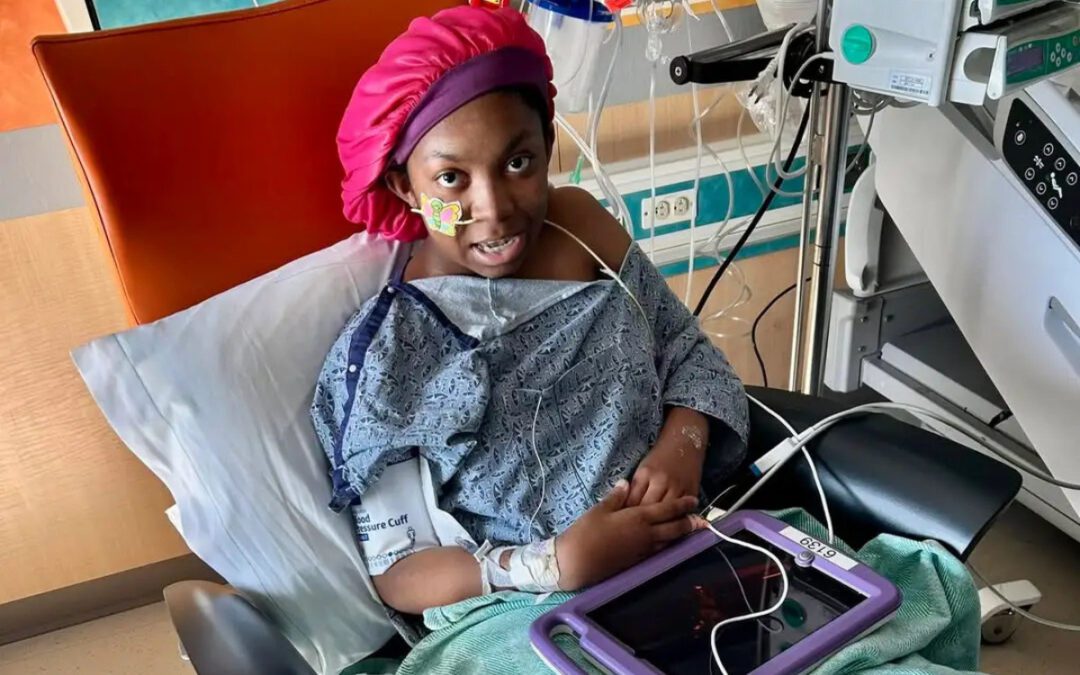
Officials investigating outbreak of Shiga toxin, possible connection to the Arizona State Fair
PHOENIX – The 17-year-old patient, clad in a light blue, patterned hospital gown and her pink and purple bonnet, sat in a hospital chair attached to...
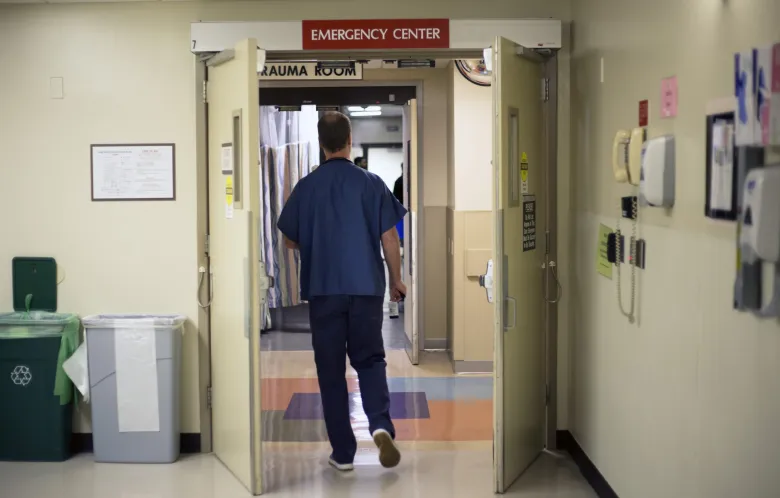
‘Ghost networks’ leave Arizona families searching for behavioral health care
PHOENIX - Joseph DeMarco was about to turn 19 when he first showed the signs of a severe mental health condition. By then, his family had already...
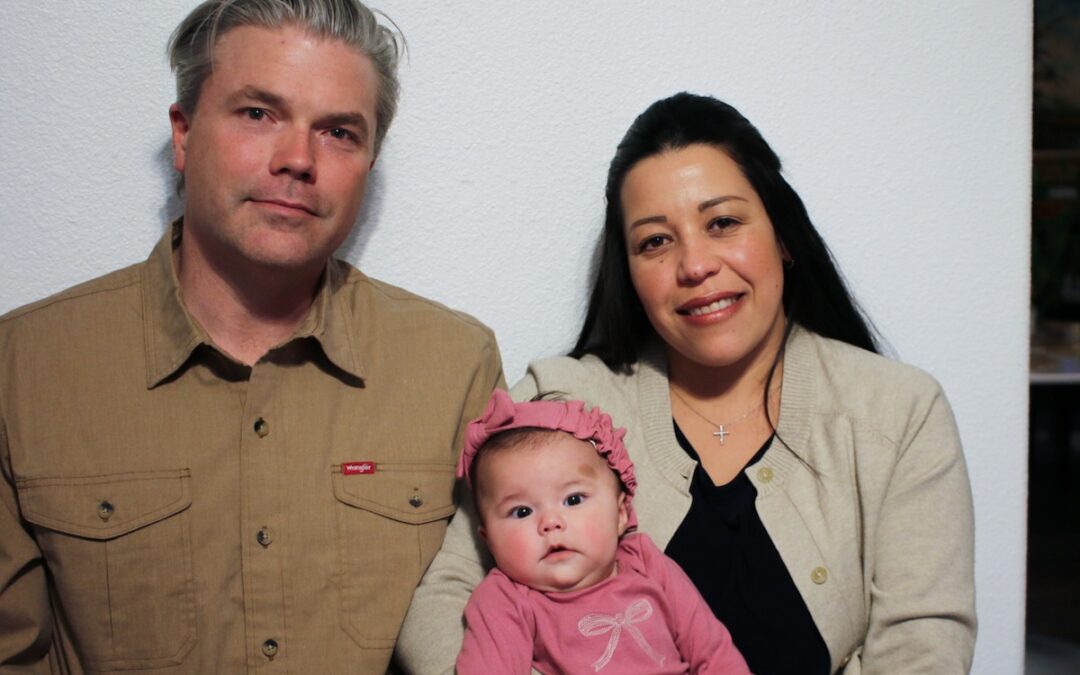
Flagstaff family with baby sickened by infantile botulism sues ByHeart over recalled formula
The parents of at least two babies sickened in an infantile botulism outbreak are suing the makers of the ByHeart baby formula at the heart of a...




